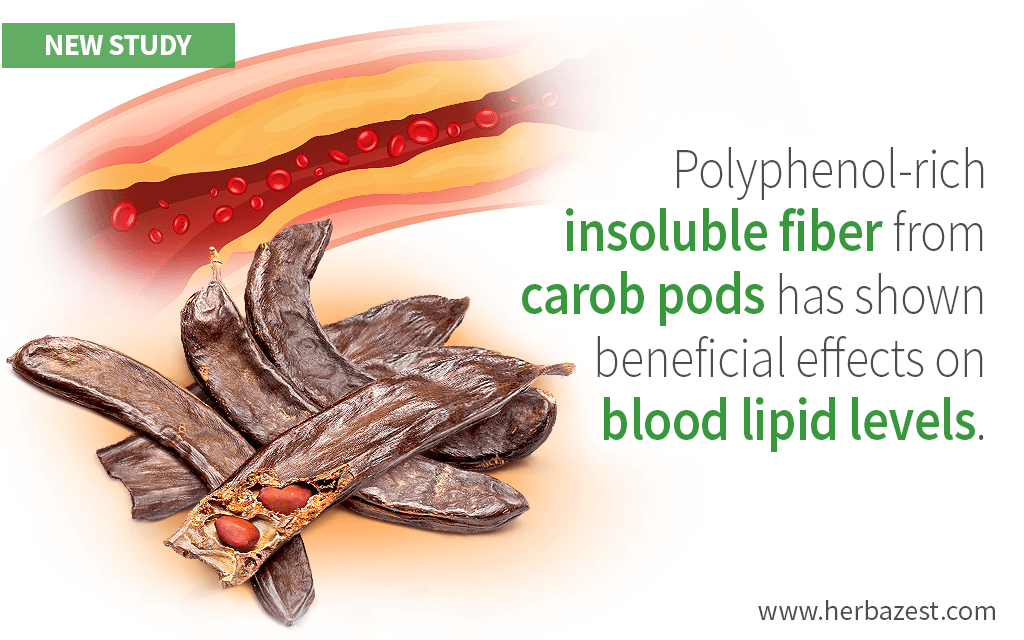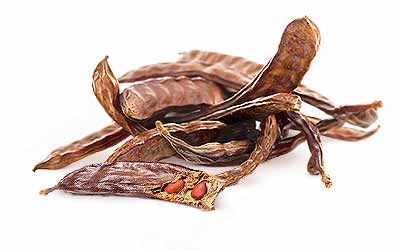People with hypercholesterolemia are often recommended to follow a fiber-rich diet. While soluble fiber has been found to reduce total cholesterol and low-density lipoprotein (LDL) cholesterol levels, data on the effects of insoluble fiber on blood lipids is scarce.
Carob is known for its high fiber content that is rich in polyphenols. These plant compounds have also been shown to help regulate cholesterol levels, making carob a potentially beneficial agent for treating hypercholesterolemia.1
The purpose of this trial was to assess whether carob's polyphenol-rich insoluble fiber can affect blood lipid levels.
The Study
This randomized clinical trial was conducted by Spanish researchers at The Complutense University of Madrid. Researchers published their results in the Plant Foods for Human Nutrition journal.
There were 88 adults involved in this clinical trial, all diagnosed with hypercholesterolemia. They were assigned to two groups: one group was consuming 4 grams of carob pods' dietary fiber (containing 80% polyphenols) twice a day or placebo containing 4 grams of maltodextrose twice daily. The study lasted for four weeks.
Participants' lipid levels (e.g., serum total, LDL and HDL cholesterol, and triglycerides) were measured before and after the study.
The Results
After four weeks, participants in the polyphenol-rich insoluble fiber group showed reduced levels of blood lipids: total cholesterol (by 17.8%), LDL cholesterol (by 22.5%), LDL:HDL cholesterol ratio (by 26.2%), and triglycerides (by 16.3%).
Participants in the placebo group did not show significant improvements.
What Does this Mean?
As evident by the results of this study, fiber-rich carob helps lower lipid levels.
These findings suggest that carob might be useful as a functional food to prevent and treat hyperlipidemia. Studies have linked a plant-based diet rich in cholesterol-lowering foods to a reduced risk of stroke and other conditions.2
Other herbs that help regulate cholesterol levels are barley, chickpeas, and apples.
Sources
- Plant Foods for Human Nutrition, Insoluble Carob Fiber Rich in Polyphenols Lowers Total and LDL Cholesterol in Hypercholesterolemic Subjects, 2010
Footnotes:
- Journal of Nutrition. (2005). Cardioprotective Effects of Dietary Polyphenols. Retrieved August 25, 2021 from https://academic.oup.com/jn/article/135/10/2291/4669864
- Harvard Health Publishing. (2020). Vegetarian diet linked to lower stroke risk. Retrieved August 25, 2021 from https://www.health.harvard.edu/heart-health/vegetarian-diet-linked-to-lower-stroke-risk







